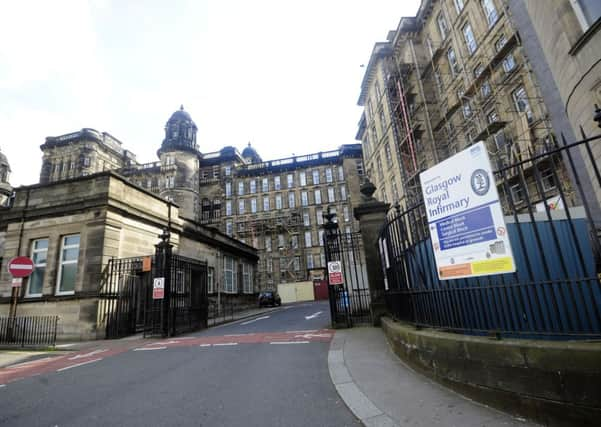Mike Dixon: NHS won’t suffer with No vote


Health is a devolved issue, so the Scottish Government can decide what they spend their money on – whether we have independence or not. There is general agreement that the day-to-day running of the health service will be unaffected after the vote because each of the four countries that make up the UK runs its own health services. What many do not realise is Scotland will need new laws, including a new abortion law, and Alex Neil has indicated he would like to see the 24-week limit for abortion reduced.
Funding for healthcare comes from the UK and Scotland gets almost 10 per cent more per head of population to spend on health than England, and that is why our health service is better. Philippa believes this 10 per cent extra may not survive after a No vote. There is no real evidence of this. If there was a Yes vote, Scotland would have to find this extra 10 per cent. The reality is the government can decide what to spend its money on.
Advertisement
Hide AdAdvertisement
Hide AdI am fed up with health becoming a political football. Scotland has a health service to be hugely proud of. Some of the best and best-known surgeons in the UK work in Scotland.
In a Sunday Times list of the top seven general surgeons in the UK, two work here in Scotland. We are blessed in Scotland by having great support from governments of all colours. The NHS is not an argument for separating.
The two things that have killed more people in the world than medicine has ever saved are religion and nationalism. I don’t think anyone would argue with that – and you don’t have to look far for examples.
I am English but masquerade abroad as a Scot. That is because Scots are so well thought of abroad. Scotland already has its own unique identity. It does not need independence to establish this. I am English originally but have lived most of my life in Scotland. Does Scotland really want to be looking inward when the rest of the world, particularly in medicine, is looking outward?
There is huge scope for innovation in Scotland. The team in Edinburgh have developed new techniques to improve the results after breast cancer surgery and we offer a range of procedures here in Edinburgh that you cannot get in England. We innovate and develop because of the environment we work in and the support we get from the health board and the Scottish Government. That, I believe, will always be there. It is the Scottish way regardless of independence. Scotland has always supported innovation and invention.
We have a “star” health service here. It’s free and particularly people in the US are in awe of what we have and can do here. That is why I get invited five or six times every year to speak in the US. We are ahead of the game. We need to be proud of what we have.
One concern is that there is little or no scope for proper debate over the independence issue. Whenever anyone puts their heads about the parapet, they get shot down.
What is clear is that no-one can tell with any certainty what is going to happen if there is independence, and it’s this uncertainty that is the problem.
Advertisement
Hide AdAdvertisement
Hide AdUncertainty in particular surrounds research funding. Scotland gets a disproportionately large share of funding from the UK. National governments fund national research. The Scottish Government proposes a new common research fund with the UK, but 14 leading medical figures in an open letter described this as fraught with difficulty and unlikely to come to fruition.
For someone who has spent their whole life finding the best way to look after people – based on evidence – I don’t see any evidence to vote for independence because it will improve Scotland’s healthcare system.
It is already great and it is likely there will be no great changes either way. Independence could have a negative impact on research funding and there are issues on universities that have yet to be sorted. UK students are likely to be exempt from fees after independence and that may hit funding for Scottish universities.
We need to be more international, not less. The whole independence debate has opened up a gap between the Yes and the No camps. That may fester long after the vote. It is why I have a postal vote and will be speaking in the US about our great healthcare system when the vote takes place. Will some of the No voters disappear if Scotland becomes independent? Certainly, a number of doctors and researchers I’ve spoken to have concerns and will consider their options in the event of a Yes vote.
Will I leave? I want to stay in Scotland, I feel Scottish, I masquerade as a Scot, but a Yes vote is one less reason for people like me to stay.
• Mike Dixon is Professor of Surgery and Consultant Surgeon at the Edinburgh Breast Unit at the Western General Hospital.